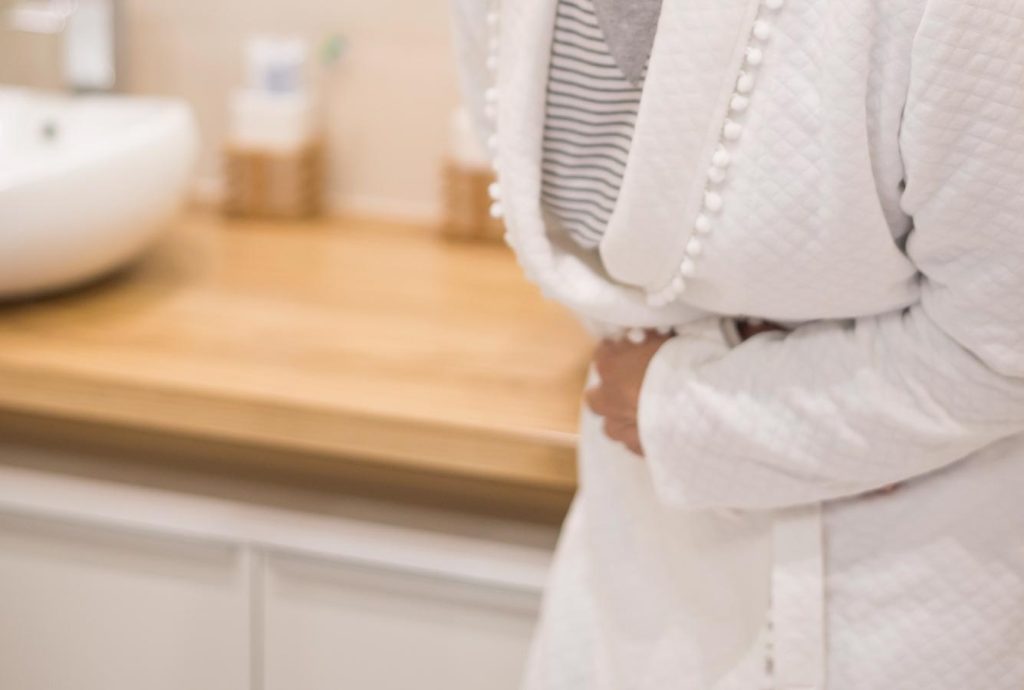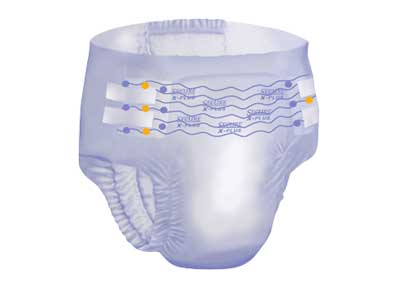Why Double Diapering Doesn’t Work
Incontinence, whether caused by a medical condition, a temporary health issue, or aging, is a very challenging issue to manage effectively. For many individuals and caregivers dealing with incontinence, the instinctive solution to prevent leakage is to double up on the incontinence supplies.
While this may seem like a logical solution, double diapering is not effective and can make the problem worse. This article will explore some of the causes of incontinence, explain why double diapering does not work, and offer practical tips to prevent diaper leakage.

Types Of Incontinence
Urine and bowel incontinence can occur for various reasons and affect people of all ages.
Types of urinary incontinence include:
- Urgency incontinence – the person needs to urinate often and often has a very strong need to urinate. This type of incontinence often occurs and is associated with people who have an overactive bladder.
- Stress incontinence – this type of incontinence is brought on by exercise, coughing, sneezing, or lifting heavy objects. Anything that puts the bladder under pressure may cause stress incontinence.
- Functional incontinence – this incontinence is a result of a physical limitation that makes it difficult for the individual to reach the bathroom on time.
- Overflow – this type of incontinence occurs as a result of urine exceeding the bladder’s capacity, often due to the bladder not emptying properly.
Causes Of Incontinence
There are numerous causes of incontinence – involuntary loss of bladder or bowel control. Understanding the causes is essential for effective management.
Here are some common causes of incontinence:
- Aging
- Neurological disorders
- Urinary tract infections
- Pregnancy and childbirth
- Enlarged prostate
- Medications and diuretics
1. Aging
As people age, the muscles around the bladder and urethra tend to weaken. this will make it harder to control urination.
2. Neurological Disorders
Urinary and bowel incontinence can occur when nerve signals to the bladder and bowel are interrupted. Conditions that would disrupt the nerve signals include Parkinson’s disease, Multiple Sclerosis, and spinal cord injuries.
3. Urinary Tract Infections (UTIs)
Temporary urinary incontinence can occur from infections that cause bladder irritation. Inflammation and irritation of the bladder can lead to bladder overactivity and involuntary urine leakage.
4. Pregnancy And Childbirth
Hormonal changes that occur in pregnancy and the strain of childbirth can weaken pelvic floor muscles and cause urinary incontinence.
5. Enlarged Prostate
In men, a large prostate can affect the flow of urine and cause urinary incontinence/overflow.
6. Medications And Diuretics
Certain medications can increase urine production and affect bladder control and bladder function, resulting in urinary urgency or temporary/permanent incontinence.

Reasons That Diapers Leak
Ideally, diapers should fit well and not leak. There are, however, some preventable reasons that diapers leak, including:
- The diaper is the wrong size. It is essential to follow the manufacturer’s recommendations and wear the correct size diaper.
- The diaper has been put on incorrectly. Even if the diaper is the correct size, if not it will leak.
- The diaper is not the correct choice for individuals who move a lot or are physically active.
- The incorrect diaper has been used for excessive nighttime or fecal incontinence. They are special high absorbency diapers that accommodate nighttime and fecal incontinence.
Why Double Diapering Is Not The Solution To Leakage
Double diapering may appear to offer more absorbency and protection, but generally has the opposite effect.
Here are some reasons that double diapering is not recommended:
1. Compromised Fit
Layering one diaper on top of another compromises the fit of both diapers. The inner diaper can’t conform to the body correctly, and the outer diaper will shift or bunch. The ill-fitting diapers result in gaps where leakage can occur.
2. Increased Leakage And Odor
Double diapering does not double the moisture absorption properties. Instead of absorbing more, the second diaper prevents the first one from expanding properly. This impairs the ability of the inner diaper to absorb, causing fluid to leak out before it reaches the second diaper.
Diapers are designed with an inner absorbent layer and an outer waterproof layer. When the inner absorbent layer is saturated, fluid will not go through the waterproof layer but rather leak out of the waistband and gaps around the legs and onto the individual’s clothing.
3. Skin Irritation And Breakdown
Double diapers cause friction and trap moisture against the skin. The trapped moisture increases the risk of rashes and skin infections, and can also cause skin breakdown, pressure ulcers, or pressure sores.
4. Urinary Tract Infections
Double diapering often gives caregivers the false impression that they do not need to change the diapers as frequently. When trapped moisture is not adequately wicked away from the skin, the moisture and heat create an ideal breeding ground for bacteria that can cause urinary tract infections (UTIs).
5. Increased Expense
Using two diapers simultaneously doubles the cost without providing any added protection.
Tips To Prevent Diaper Leakage
Instead of resorting to double diapering, which does not work, there are other solutions to prevent leakage.
Five effective solutions to prevent diaper leakage are:
- Choose the right product. It is essential to use the correct diaper for the individual’s needs. High absorbency diapers are recommended for nighttime use and for individuals who frequently saturate their diapers.
- Use booster pads. Booster pads are designed to be used inside the diaper. They absorb fluid until full, then allow the overflow into the diaper. Booster pads maximize the overall absorbency of the diaper without compromising the diaper’s fit.
- Change the diaper regularly. it is essential to change the diaper before it reaches its capacity. Establish a schedule to check and replace the diaper before it starts leaking.
- Choose the correct size. Ensuring that the diaper fits well will ensure that it is efficiently absorbent and does not leak. Manufacturers offer size guides to help with choosing the correct size.
- Adding protective outer garments, like waterproof pants, will assist in leakage prevention. Adding the extra layer will also give individuals with heavy incontinence the added peace of mind, especially at night.
Tranquility Incontinence Supplies From Affordable Medical Supply
Not sure what you need? Affordable Medical Supply is an authorized dealer of multi master distributors, and we proudly offer a wide range of Tranquility Incontinence Products. Renowned for their exceptional absorbency, skin protection, and comfort, Tranquility Incontinence Products are engineered with comfort in mind, and are an excellent solution for both day and nighttime incontinence.
At Affordable Medical Supply, we believe that people have a right to manage incontinence with dignity and effectiveness. Advanced planning and good hygiene combined with superior incontinence supplies are the key to maintaining quality of life while managing incontinence.
For more information on superior incontinence supplies and products, contact Affordable Medical Supply at 866-484-7599 today.




